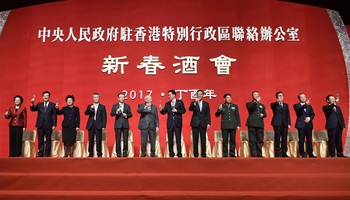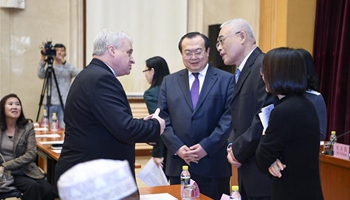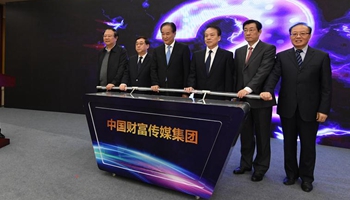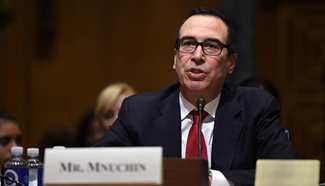by Xinhua writer Liu Chang
BEIJING, Jan. 20 (Xinhua) -- Few would disagree that China and the United States, the world's top two economies, can not only do each other a lot of good, but make a real difference for a better world by joining hands together.
Friday marks the inauguration of Donald Trump as the new U.S. president. How his administration is going to handle its relationship with Beijing has sparked global concerns as the new leader in Washington has challenged the one-China policy during the transition, and played tough against Beijing on trade and currency.
There have even been wild hypes about a total trade war and even a military confrontation between Beijing and Washington.
In fact, the relationship of the two nations has over the past several decades navigated through rougher waters.
Also, the most probable scenario after Jan. 20 is that once Trump starts to govern from the Oval Office, he will find China a much-needed partner on multiple fronts.
Trump won the U.S. presidency by promising to "make America great again," a catch phrase for rejuvenating the country's hollowed manufacturing industries and creating some 25 million jobs over the next 10 years.
While running for presidency, Trump numerously blamed China for taking away manufacturing jobs from the United States. But facts point the other way.
According to a report published recently by the U.S.-China Business Council and Oxford Economics, U.S. exports to China and bilateral investment has supported 2.6 million new jobs for Americans across a host of industries. That's more than 10 percent of the number of jobs the new U.S. leader has promised to deliver.
On one hand, the study well reflects the unprecedented level of economic interdependence between the two countries; on the other, it shows that derailing bilateral economic interactions would not only harm China, but could cost the United States more dearly.
Across the world, promoting faster global economic recovery and exploring a new path for globalization are getting increasingly urgent. Trump's potential protectionist trade policies go against this trend and may dampen his efforts to grow the American economy.
Also, tackling climate change, terrorism and other challenges that threaten the world as a whole is where China and the United States can work together for mutual benefits.
The Paris climate accord reached in December 2015 has proved that Beijing and Washington can embrace each other for big and noble purposes despite disagreements. The Trump administration should do no less at least for the sake of America's own future.
Then comes the question of Taiwan. When former U.S. President Richard Nixon visited China in early 1972 to end the two nations' more than two decades of estrangement, both sides reached the agreement that there is only one China in the world and Taiwan is part of China. This agreement has since served as an indispensable ballast for the stability and development of the bilateral ties.
China seeks productive cooperation with the United States, but it will never make concessions on its core national interests.
Trump, who is believed to be good at cutting deals, should know that not everything is negotiable.











